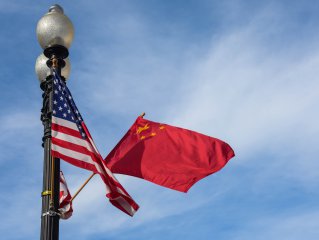
WASHINGTON, June 18 (Xinhua) -- Washington's additional tariffs on semiconductors and the broader IT industry will harm U.S. tech sector and are "ill-equipped" to address tech transfer and intellectual property issues with China, the U.S. Semiconductor Industry Association (SIA) said Tuesday in a hearing.
The hearing, the second of a series held by the Office of the U.S. Trade Representative (USTR), aimed to solicit public comments and responses regarding proposed additional tariffs of up to 25 percent on 300 billion U.S. dollars in goods from China.
"If tariffs on key consumer IT products are implemented, the economic consequences for the U.S. IT industry will be crippling," said Devi Keller, director of global policy at SIA.
Imposing tariffs on virtually all Chinese-imported IT products would decrease the U.S. IT market by 70 billion U.S. dollars over 2019 and 2020, dragging down the U.S. IT spending by nearly 3 percent, according to SIA.
U.S. IT spending was forecasted to grow at 5 percent in 2019 and 5.3 percent in 2020 prior to the U.S.-China trade tensions, but if the additional tariffs are implemented, IT spending growth would drop to 2.1 percent in 2019 and 2.4 percent in 2020, according to SIA.
Also, SIA estimated that the net impact of the additional tariffs on IT products would decrease U.S. GDP growth by 0.9 percent in 2019 and 0.3 percent in 2020 based on a forecast of 2.5 percent GDP growth in 2019 and 0.8 percent in 2020.
Vendors would absorb costs or pass on higher costs to customers, but "either way, there will be costs to the U.S. economy and IT sector in the form of cutbacks in spending, job losses and weaker wage growth," said Keller.
He expressed worries that additional tariffs would also weaken U.S. investment in new technologies like artificial intelligence and big data.
Keller's remarks were echoed by Mike Russo, vice president of SEMI, a U.S. industry association for the electronics manufacturing supply chain, who said that trade enabled investment in research and development which in turn fuels innovation and continued growth.
"Without trade opportunities, innovation dries up; without innovation, opportunities to export slump," Russo said in the hearing.





















Latest comments